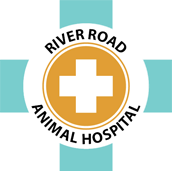Library
-
Amitriptyline is used off label and given by mouth to treat behavioral and pain disorders in dogs, cats, and occasionally birds. Common side effects include sedation, dry mouth, constipation, and urinary retention. This medication should not be used in pets sensitive to TCAs, seizures, or pets currently using MOIs or flea collars. If a negative reaction occurs, call your veterinary office.
-
Amlodipine is given by mouth and is used to treat high blood pressure in cats and dogs. Common side effects include vomiting, diarrhea, lack of appetite, sleepiness, or gingival (gum) overgrowth. Do not use in pets that are allergic to it, are in shock, have aortic stenosis, or are in liver failure.
-
Ammonium chloride is used off label and given by mouth to treat metabolic alkalosis, struvite stones, and certain toxicities occasionally in small animals and more often in large animals. The most common side effects include pain at the injection site or stomach upset if given by mouth. Do not use in pets with severe liver, kidney, heart, or lung disease. If a negative reaction occurs, please call your veterinary office.
-
Amoxicillin is given by mouth and is used on and off label to treat certain bacterial infections in a variety of species. Common side effects include lack of appetite, vomiting, and diarrhea. Do not use in pets that are allergic to it or other penicillins, cephalosporins, or other beta-lactam antibiotics; do not use in rabbits, guinea pigs, chinchillas, hamsters, or other small mammals.
-
Amoxicillin-clavulanic acid, also known as amoxicillin and clavulanate potassium (brand name Clavamox®), is a synthetic, penicillin-type antibiotic used to treat infections caused by gram-positive and gram-negative bacteria. It is used to treat skin infections, soft tissue infections, and periodontal disease. Amoxicillin-clavulanic acid comes in tablet and liquid suspension form.
-
Ampicillin is an antibacterial medication given by injection or by mouth and is used on or off label to treat certain infections. Side effects include allergic reactions or gastrointestinal upset, and neurological signs when given in high doses. Ampicillin use is contraindicated in pets allergic to penicillins and in rabbits, guinea pigs, chinchillas, or hamsters. If a negative reaction occurs, please call your veterinary office.
-
Amyloidosis occurs when amyloid proteins are deposited outside cells in various tissues and organs causing tissue and organ dysfunction. It is uncommon in cats, except for Abyssinians, Siamese, Burmese, Tonkinese, Devon Rex, and Oriental shorthair breeds. Signs depend on the organs involved, but kidney involvement is most common. If kidneys are involved, signs include mouth ulcers, weight loss, vomiting, and dehydration. For cats with liver involvement, signs include weakness, pale gum color, distended abdomen, rapid heart rate, rapid breathing, abdominal pain, and collapse.
-
The anal sacs and ducts can become inflamed or infected for a variety of reasons. This handout outlines signs to watch for, diagnosis, and treatments, including identifying and managing underlying causes.
-
Anal sac tumors grow quickly and have a moderate risk of spreading to other parts of the body. Depending on the tumor’s size, your pet could develop signs of straining to defecate or produce thin, ribbon-like stool. The best treatment for the primary tumor is surgery. Radiation and chemotherapy may be considered if there is evidence of spreading.
-
Anemia is a medical term that refers to a reduced number of circulating red blood cells, hemoglobin, or both. It is not a specific disease, but rather the result of some other disease process or condition. The most easily observed and common clinical sign of anemia is a loss of the normal pink color of the gums. Several tests are performed on blood samples to diagnose anemia. If your cat's anemia is so severe that it is life threatening, a blood transfusion will be needed.

